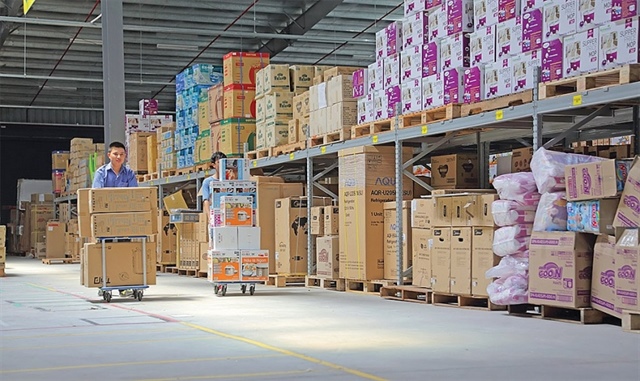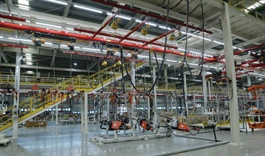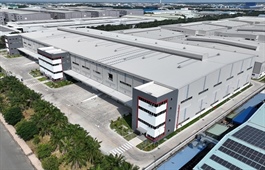Online shopping discharges thousands of tonnes of plastic waste each year
Online shopping discharges thousands of tonnes of plastic waste each year
To earn $1 billion, the e-commerce industry pours more than 7,600 tonnes of plastic into the environment, while food delivery does nearly 18,600 tonnes of plastic, according to a consultation on the Law on E-commerce the Ministry of Industry and Trade announced a few days ago
|
This ministry believes that the law needs regulations on the construction and development of e-commerce
Currently, the regulations in Decree No.85/2021/ND-CP amending and supplementing several articles of Decree No.52/2013/ND-CP on e-commerce involving foreign traders, provide basic legal frameworks for the operation and operation models of e-commerce.
However, due to the strong development of e-commerce, current regulations need to be adjusted towards sustainable development for long-term growth.
According to the survey of the Vietnam E-commerce Association in 2024, the rapid development of the Vietnamese e-commerce industry has led to many environmental problems, especially waste from packaging, order fulfilment and online food delivery.
Without effective solutions to reduce plastic waste, by 2030, when the e-commerce market reaches $100 billion, the amount of plastic waste from this sector is estimated to reach 800,000 tonnes.
In 2024, the online shopping and food delivery markets in Vietnam reached $25 billion and $1 billion, respectively, emitting about 160,000 cardboard boxes and 171,000 tonnes of plastic, mainly single-use plastic, according to the World Wildlife Fund.
E-commerce is struggling with a significant increase in waste from packaging and transportation, putting great pressure on the environment.
Besides it, green standards and sustainable development responsibilities are becoming common requirements in global e-commerce activities, requiring businesses to integrate emission reduction solutions, use environmentally friendly materials and build green supply chains.
Therefore, the development of e-commerce policies needs to emphasise the development of environmentally friendly e-commerce infrastructure, encourage businesses to apply green technology and enhance consumer awareness of sustainable consumption.
These steps help protect the environment and enhance the competitiveness of Vietnamese e-commerce, contributing to a sustainable digital economy.
Accordingly, the Ministry of Industry and Trade emphasised that it is necessary to supplement and improve the policy on developing e-commerce in a green and sustainable direction, and create better conditions for applying e-commerce in operations.
The state should allocate resources from the central to local levels to encourage sustainable e-commerce development. Moreover, businesses need to invest more in technology and innovate business processes to meet new standards, especially green e-commerce, the document highlighted.
Product prices may increase due to the cost of applying environmental standards and improving infrastructure.




























